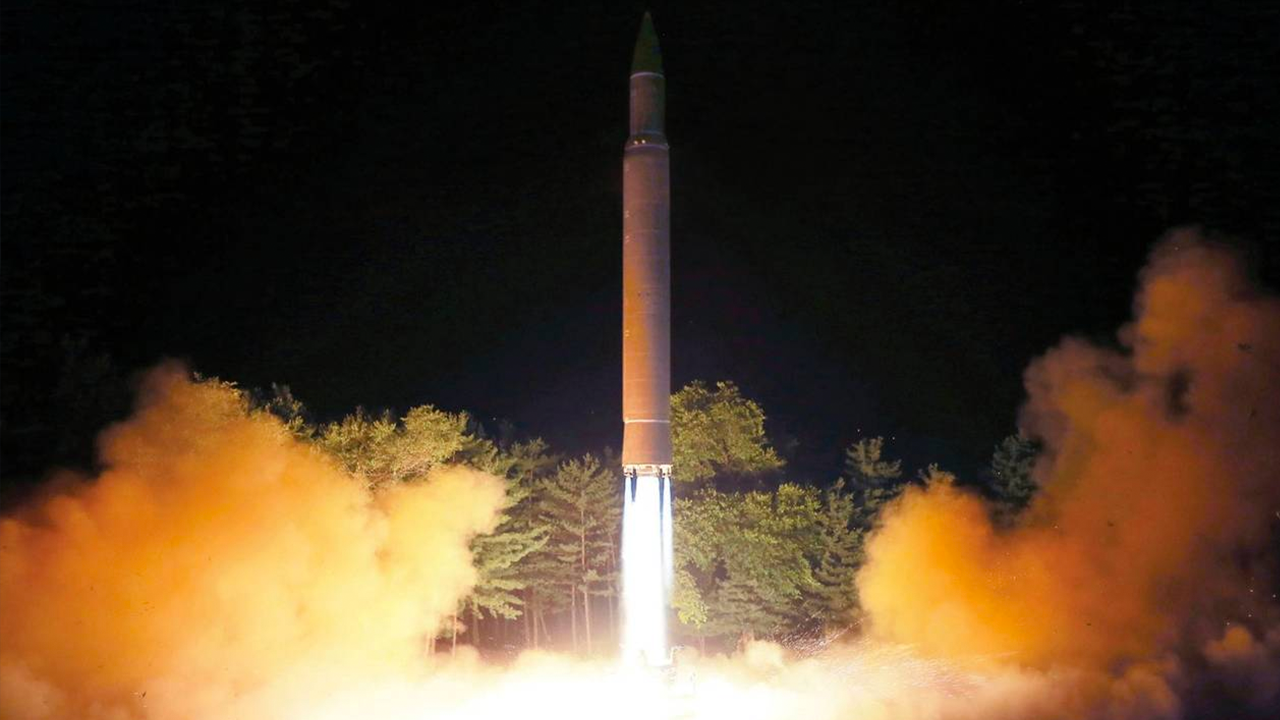This article appeared in The Hill on August 20, 2017. Click here to view the original article.
By John Bolton
August 20, 2017
Yet another tumultuous week in domestic affairs, starting with the Charlottesville tragedy and ending with Steve Bannon departing the Trump White House, drove the continuing threats of international terrorism and nuclear proliferation off America’s front pages. The media’s vicissitudes may be inevitable, but they constantly produce “surprising” strategic developments that were both predictable and long in the making.
In that vein, one of the Trump administration’s principal legacies could well be that North Korea (and Iran) became full-fledged nuclear-weapons states on its watch. If so, the risks of radical Islamic terrorism will also increase correspondingly. Certainly, President Trump’s predecessors made critical blunders in counterproliferation policy, thereby laying the foundation for this potentially massive failure. But historical blame rests inevitably with the administration that missed the last clear chance to prevent it.
The mortal risk that terrorists will acquire nuclear (or chemical and biological) weapons is all too clear. ISIS claimed responsibility for Thursday’s deadly terrorist attack in Barcelona, which now appears part of a larger, more complex effort, foiled in part by Spanish authorities. Friday’s terrorist knifings in Finland added to the grim news. Imagine these or other terrorist attacks that deployed weapons of mass destruction.
Ironically, North Korea warranted media attention last week only because of Bannon’s remark, in an interview just before he left government, that no real military option exists against Pyongyang’s nuclear capabilities. The media, however, largely bungled the significance of his comments, determined instead to prove broader intra-administration disagreements on national-security policy. Unfortunately, whatever the internal dynamics, President Trump’s nuclear-proliferation advisers appear far closer to Barack Obama’s views than anyone would have predicted.
The press quickly contrasted Bannon’s “dovish” remark that “there’s no military solution here” with Secretary of Defense James Mattis’s “hard line.” But note carefully what Mattis actually said last week: “There are strong military consequences if the DPRK initiates hostilities.” That statement is not “hard line.” It simply expresses what nearly every American believes: If we are attacked, we will retaliate, presumably with devastating force. I don’t understand Bannon to be anywhere close to opposing retaliation if North Korea were to obliterate New York.
Paradoxically, on Iran, press reports portray Bannon as nearly alone among Trump’s senior advisors in advocating U.S. abrogation of Obama’s disastrous nuclear deal. Whether Trump now pursues his personal inclinations to withdraw, repeatedly expressed publicly, or whether he will be smothered a third time by internal administration advocates of the deal, remains to be seen.
Mattis’s statement is consistent with what he and Secretary of State Rex Tillerson wrote in a Wall Street Journal column last week: They want to eliminate the North’s nuclear and missile programs through “carrots and sticks” diplomacy, and they ask North Korea to seek “international acceptance,” an approach that has repeatedly failed for 25 years.
Instead, U.S. policy on North Korea and Iran should turn on one central point: Will America and its allies be safe employing Cold War-style policies of containment and deterrence, or are we safe only if rogue states’s nuclear and missile capabilities are eliminated?
The Trump administration is now the fourth in a row whose stated objective is the latter, but its policies are indistinguishable from its three predecessors, the failure of which have brought us to the current crisis. Maintaining these policies will enable Pyongyang to continue building an extensive nuclear and ballistic-missile arsenal. History will record today’s events as the “First North Korean Nuclear Crisis,” soon followed by the “Second North Korean Nuclear Crisis,” and so on into the indefinite future.
Even as the authors of prior administrations’s failed efforts are forced to confess their failure, they blithely propose instead, as Obama adviser Susan Rice recently did, that we “tolerate” a North Korean nuclear-weapons capability. And surely, that is where we will finish if we fall for dangerously facile Cold War analogies. A series of nuclear standoffs with the likes of North Korea and Iran, whose cost-benefit analyses in no way resemble Moscow’s back in those good-old Cold War days, is hardly a scenario we should wittingly embrace.
The preferred outcome is resolving the threat by eliminating its source, namely North Korea’s regime, preferably by reuniting the two Koreas under the South’s model, or failing that, by a coup replacing as much of the current leadership as possible. North Korea is manifestly more than a Northeast Asia problem. Kim Jong Un would unhesitatingly sell any technology it possessed, including nuclear, to anyone with hard currency. Iran is one such potential customer. Terrorist groups like ISIS and Al Qaeda, befriended by wealthy governments or individuals, could also be buyers.
Accordingly, if the regime-change options fail, then a preemptive military strike to eliminate the North Korean and Iranian programs may well be the only way to avoid decades of nuclear blackmail by Pyongyang, Tehran and inevitably others, including the terrorist groups who might acquire weapons of mass destruction. Israel has twice before reached this conclusion, in 1981 against Iraq and in 2007 against Syria. It was not wrong to do so.
The terrorist and weapons-of-mass-destruction threats are converging. Fortunately, no terrorists have yet laid hands on these assets (that we know of), but the complexity of terrorist attacks, as Barcelona demonstrates, may again be on the increase. Short media attention spans may be a contemporary inevitability, but the disease should not spread to U.S. national-security decision makers. President Trump’s unwavering objective should be to stop the birth of two new nuclear-weapons states. If he fails, we are all at risk.


